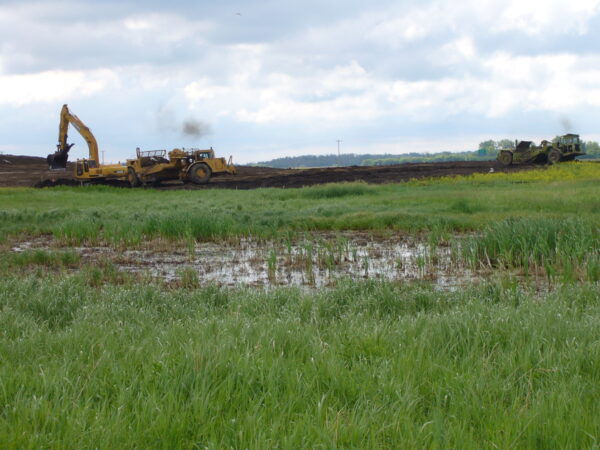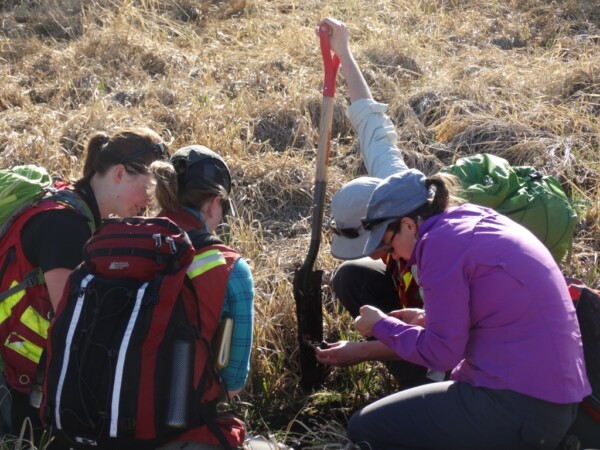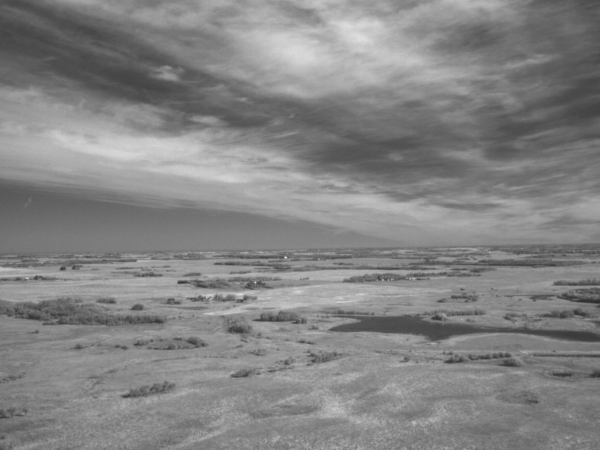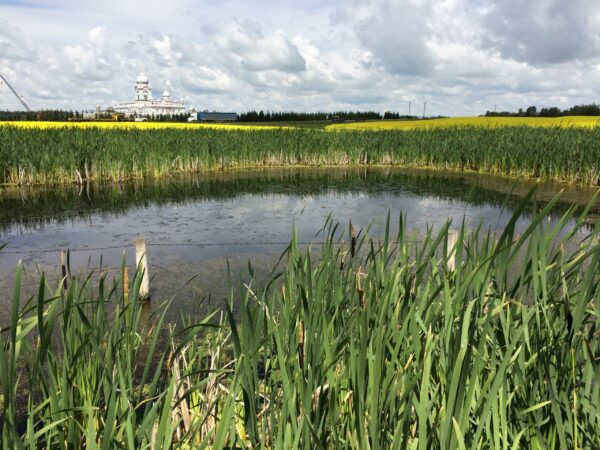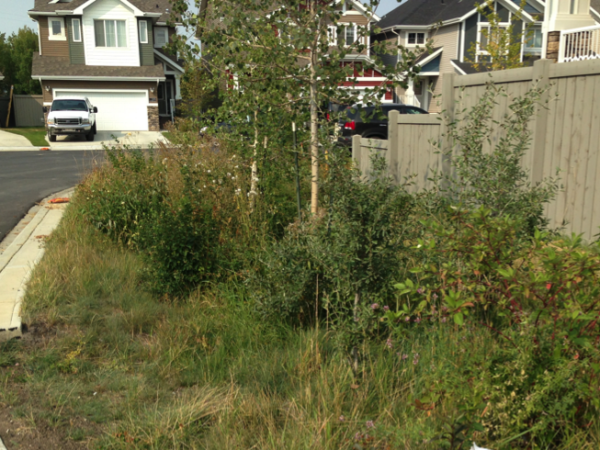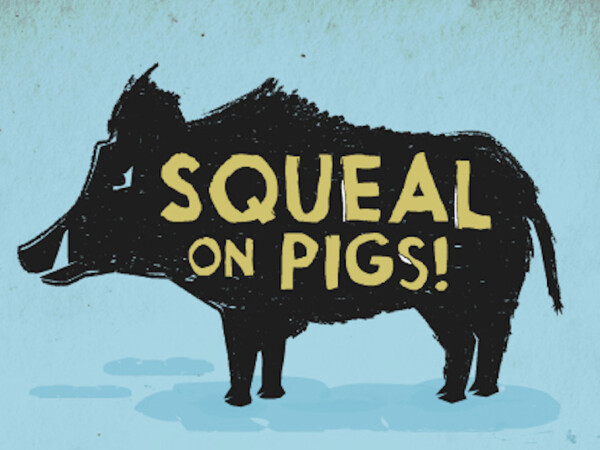Thinking about participating in a Track & Sign Evaluation? Then check out these frequently asked questions. If you get to the bottom and you still have questions, please contact us.
Are there any prerequisite required to attend an Evaluation?
No, there are no prerequisites. You can be a complete novice and still enjoy and learn loads by participating in an evaluation. However, they are called Evaluations for a reason, and at least 50% of the workshop time is devoted to evaluating the skills of the participants. If you come in to the Evaluation with relatively modest skills, you are likely to score poorly and not receive a Certification. You will, however learn a lot, and leave the Evaluation a better tracker than when you started.
Does everyone who participates fully in the Evaluation get a certification?
No. Whether or not you get a certification depends on how well you do in the Evaluation. Any participant who scores over 69% will achieve a certification. It is not uncommon for the majority of participants to not achieve a certification. The goal of this process is not to award certifications, it is to evaluate your skill as a tracker while providing an environment of inspired learning. The required scores for increasing levels of certification are outlined below:
Level 1 69-79%
Level 2 80-89%
Level 3 90-99%
Level 4 100%
If these events are focused on evaluating the skills of participants, when does the learning part take place?
Learning happens immediately and continuously throughout the workshop, on a number of levels.
- First, some of the evaluation questions will be on things that you never noticed before or gave any thought to, and just the challenge of trying to answer the question will broaden your perspective, and start you on the way to increasing your knowledge and becoming a better tracker.
- Second, each question is debriefed after everyone has given their answer. You get the chance (if you want it) to describe how you approached the problem, what you saw, and the logic you used to get to your answer. The act of speaking about tracking is away of bridging the gap between right-brained (or artistic & perceived) observations, and left-brained (logical & tangible) observations. It takes both sides of the brain to be a really, really good tracker, and talking about tracks and what we see and how we draw conclusions helps us do that.
- Third, you will get to hear what others saw, and the logic they used, and this will broaden your own perspective, and help you tune your own deductive process.
- Fourth, and finally, one of the top trackers in North America will be there to guide the conversation, answer questions, and explain where people made mistakes, and how to avoid those mistakes in the future.
I am a complete beginner at tracking, do you recommend that I do a Track & Sign Evaluation?
Honestly, no. You will learn a lot, but you might not get many questions right, and that can be discouraging, and we don’t want anyone interested in developing their tracking skills to get discouraged. If you are total beginner, then I suggest looking into some other tracking workshops and getting some of the basics down before investing in a Track & Sign Evaluation. With that said, even beginners are going to learn a lot from the experience, which should make it worth while, provided you aren’t expecting to get a certification on your first try.
How much instruction do we get during a Track & Sign Evaluation before the instructor begins evaluating us?
Zero instruction before the evaluation begins. The evaluation process begins almost immediately. However, instruction and explanation and deep discussion occurs throughout the process as the answers to evaluation questions are reviewed. The depth of discussion depends on the interest and questions put forward by the participants. The materials discussed while reviewing one question may be exactly the information needed to help you answer one of the next questions.
How does the evaluation work, how do we give our answers?
Basically the Evaluator identifies some questions in an area, and they have volunteers stand by each area, and ask the questions the Evaluator wants asked – for example, they might point at a track in the mud or snow and ask “who stepped here?”. When you, the participant, have come up with an answer, you just jot it down in your own note book, and show it to the volunteer, who then notes it on a clip-board. Then you move on to the next question and someone else moves in to answer the question you just answered. Once a round of nine or so questions is complete, the whole group circles back around and debriefs the questions, and discuss the answers with the Evaluator.
Can I bring my field guide, phone/camera, ruler/measuring tape, and magnifying glass with me to an Evaluation?
Yes, but you aren’t permitted to use them while answering a question.
Can I change my answer once I’ve given it to a volunteer?
Yes, but not once you have left the question area. Better to just hold on to your answer until you are sure its the one you want to give.
Why do Track & Sign Evaluations cost more than other wildlife tracking workshops?
The cost is partly because there are only a hand full of certified Evaluators available, and they are highly skilled specialists, and they deserve to be compensated appropriately for those rare and highly-valued, specialized skills. Further, because there are so few Evaluators, they often have to travel long distances to get to the venue. Finally, it takes some scouting to find and set up questions for the Evaluation. Evaluators do reconnaissance for up to two days in preparation for an Evaluation.
Where does my registration money go?
Approximately 49% of your registration goes to paying the Evaluator, 34% goes to the Evaluators travel expenses, and 17% goes to pay the organiser (Fiera) for providing permits, insurance, safety plans, promotions, and handling registration and fees.
I am an expert tracker, is a Track and Sign Evaluation worth my while?
Even though you may already be an expert, participating in a Track and Sign Evaluation will still be worth your while. An evaluation is a chance to see just how good you are in very objective and rigorous way. Even if you ace the evaluation, you are likely to make a mistake, and in so doing, the evaluation process will show you where you have room for improvement. Part of what makes someone an expert is their commitment to continued improvement; these Evaluations provide participants with a score, that serves as a benchmark for their current level of expertise. Inherent in receiving that benchmark is a challenge to do better next time which inspires continued improvement. Also, anyone can call themselves an expert, and honestly many people do so without having the skills to back it up. Achieving a Level III or higher Track and Sign Certification will leave no doubt, and it separates you from others who may call themselves experts without the same level of skill as you.
Where can I learn more about the evaluation process, the Evaluators, the history, the organization, and its governance?
Check out this website: Tracker Certification North America.
If you have questions, send us a note — we’d love to hear from you.
